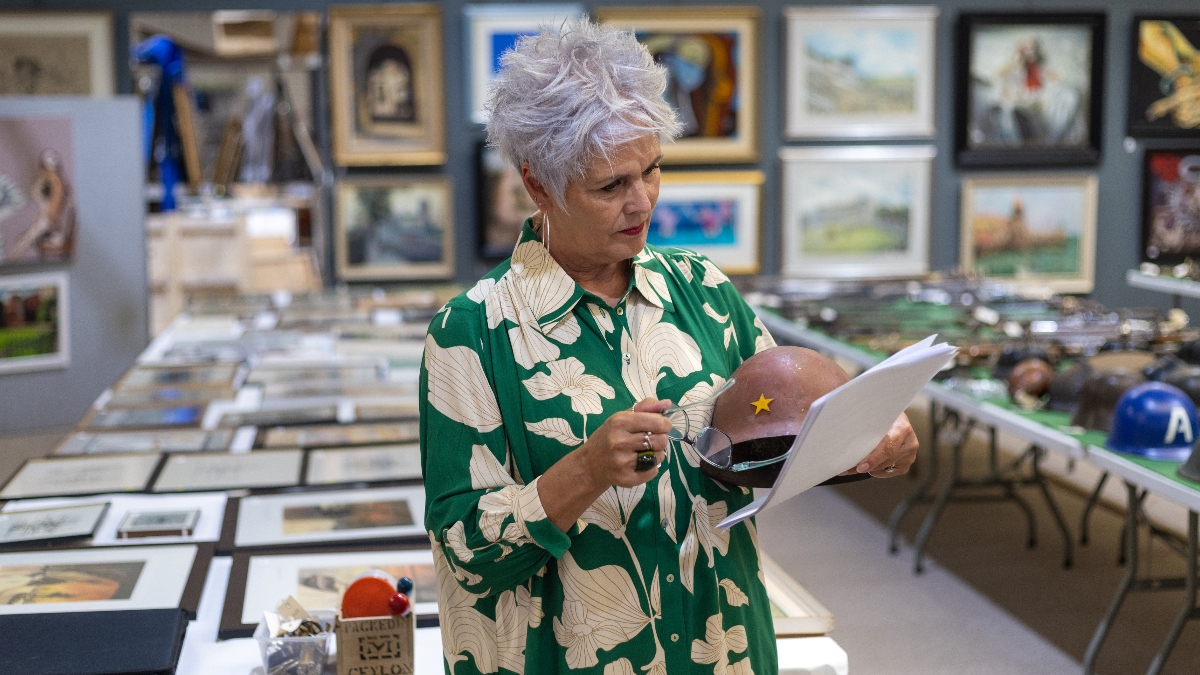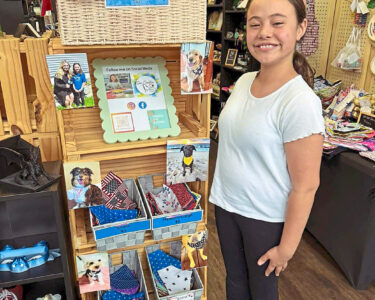Auctions are a great way to snag antiques and other valuables for an exceptional deal. But sometimes, these deals are too good to be true. That has been the case with pop-up auctions selling fake treasures appearing across the country. Keep reading to learn more about these auction scams, which are costing unsuspecting buyers thousands of dollars.
What’s a pop-up auction and is it a scam?
A pop-up auction is a temporary event where items are sold through bidding, often advertised as offering high-value goods at significantly discounted prices. These auctions are typically announced with short notice and may feature items such as jewelry, fine art and luxury vehicles. However, there have been numerous reports of scams associated with these events, where the items sold are not as valuable or authentic as claimed.
CBS News recently highlighted how common these phony auctions have been in Chicago.
But the problem isn’t contained to the Windy City. Signs advertising items of “exceptional high value” have been posted in cities around the U.S. to draw in eager buyers. Police in Riverhead, N.Y., for example, were warning residents last summer against calling the number on the auction advertisement signs and just last month a Redditor inquired about a suspicious“Public Forfeiture Auction” sign they’d seen advertised around their neighborhood.
“Every once in a while signs pop up around town claiming to promote some sort of government auction of forfeited goods—generally some mix (with minor variations) of high-end art, watch, jewelry and car brand names, and wanting people to call a number (that I’m not interested in calling),” the user wrote. “Anyone know what the nature of the scam is? Is it trying to steal a credit card number as some sort of ‘proof to be able to bid’?”
How these auction scams work
According to CBS News, buyers must call the number on the sign to be added to the “guest list” for the supposedly public auction. When they attend, they sign in and get an hour to look at the items that are available for purchase.
To help give the potential bidders as much information as possible, the items’ certification and appraisal certificates are available for viewing. Auction employees are also able to provide any needed information.
But at one auction attended by CBS News last summer, the fine print detailed that any claims made about the items for sale were not necessarily true. In a lengthy “terms and conditions of sales” document given to auction attendees, it stated that, “While descriptions are believed to be accurate, all statements or representations on such matters whether printed in a catalog or made orally are statements of opinion only and are not a representation of facts.”
The bidders tricked into buying fake auction items
While bidders have received the items they purchased, those rare and valuable goods have turned out to be anything but. One woman purchased an untitled Picasso lithograph for $6,900 that later turned out to be worth no more than $70.
She also bought a white gold diamond bracelet that the auction company said was worth $21,740 but was later appraised at $3,000 by an outside company. Since she paid $4,600, it was quite a loss.!
In the Reddit thread, one commenter shared how another victim at one of these pop-up auctions bought a “Persian silk rug” for thousands of dollars. They later discovered it was made of rayon and only worth hundreds.
Even more frustrating? Since that auction attendee had a purchase agreement that stated “no refunds,” the bank couldn’t even help them out when they reported the scam. The auction itself may have been real even if the items themselves were fake. That means it can be tough to get your money back, especially if you paid with debit or cash.
Plus, these auctions are not always run by the same company, can pass quickly through towns and cities and it’s generally difficult to track down who is behind them—making it tricky for even police to put a stop to them.
How to avoid auction scams

If you see one of these signs for a pop-up auction in your city or town, avoid calling the number that’s advertised. Not only do you not know who you are speaking to on the other line, but the auction you’ll be invited to is likely one of these scams.
Even if the auction you are attending seems legitimate, you may be wondering if an item that’s being sold could be a fake. The National Auction Association shares these tips to avoid wasting your money:
- Stay realistic. If the estimate the company is promoting seems too good to be true, it could be over-appraised to increase bidding or cover up that the item is fake.
- Learn the auction house’s inventory. Though sometimes there will be a rare, lucky find, if the asset is not typically something that is sold, it may indicate a fake.
- Check the item’s condition. The reported age should match the asset’s makeup and condition. An older, vintage item that looks brand likely will not be authentic.
- Contact outside parties. Getting the opinion of a specialist outside of the auction house selling the item will help you know if it’s worth purchasing.
- Know what items are easily faked. Handbags, autographs, entertainment and celebrity memorabilia, sports memorabilia and political memorabilia can easily dupe people who are looking to buy authentic merchandise. Researching these categories can help you learn to spot if an item is legitimate.






